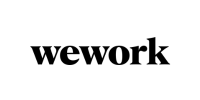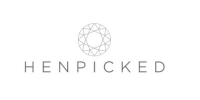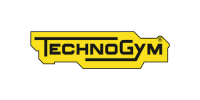Shaping the Future of Work: Wellbeing, Culture & Innovation in the Modern Workplace
The Watercooler Event is a vibrant two-day experience exploring effective ways to create workplaces that empower people to thrive. Join over 6,000 industry experts to exchange ideas, uncover transformative solutions, and celebrate the future of work.
Discover insights from industry leaders on evolving business and people strategies, network with like-minded professionals, and embrace innovative approaches to wellbeing, culture, and productivity.
Meet experts from the following disciplines:
- Wellbeing, Engagement & Mental Health
- HR & Culture
- Diversity, Equality & Inclusion (DE&I)
- Learning & Development
- Employee Benefits
- Occupational Health & Safety
Curating Collaboration with the UK’s Leading Organisations
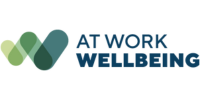


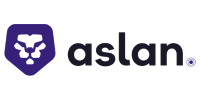

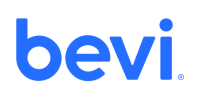





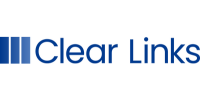








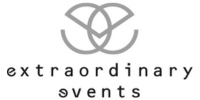


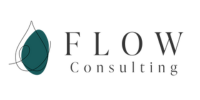
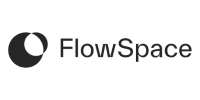







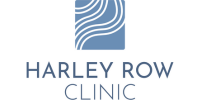
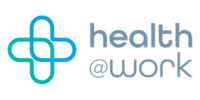



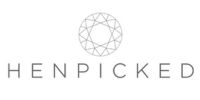






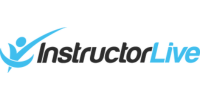

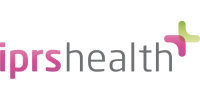
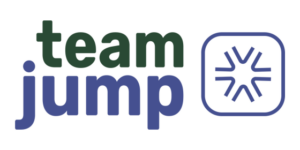
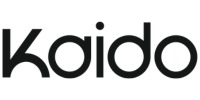









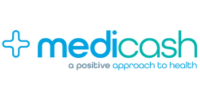


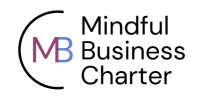
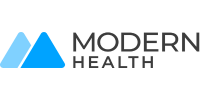




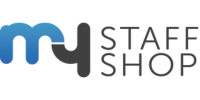




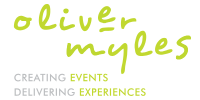

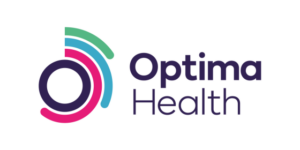




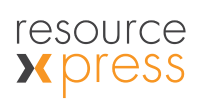

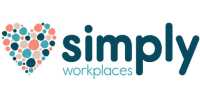
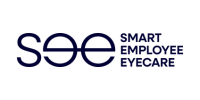




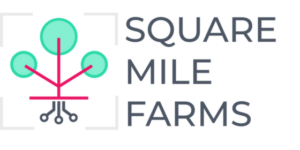



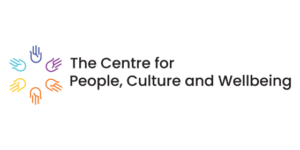











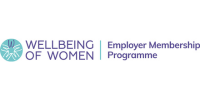




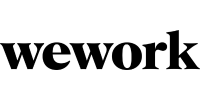
















































































































































































































































AGENDA
Delivering actionable insights to accelerate cultural change.

Speakers
Visionary thinkers from a broad range of business sectors.

Leaders’ Club
The UK’s most innovative leaders.

Exhibitors
Innovative ideas & solutions to build better workplaces.
What’s On
The Watercooler Conference and exhibition content focuses on the key pillars of wellbeing, employee engagement and culture change to enable you to build a comprehensive, strategic approach for a more productive business. As well as a series of focused workshops, the 2025 event featured three parallel tracks running across both days. Now in its fourth year, the conference brings together some of the UK’s brightest and best.

Conference
Three track conferences running side-by-side featuring thought-leading speakers and influencers, it’s held as a ‘silent disco’ format for focused and uninterrupted discussion.

Workshops
Interactive workshop sessions held within the main exhibition hall, featuring deep-dive insight and solution partner case-studies and showcases.
Working Well Beings Podcast
Exploring the Stories of Wellbeing Leaders. This special edition series was recorded LIVE at the Watercooler 2024.

Exhibition
The Watercooler exhibition is filled with leading solution partners who are at the forefront of helping businesses deliver workplace culture and wellbeing programmes.

1-2-1 Meetings
Fast-track your supplier and technology partner search via our 1-2-1 meetings programme. Just indicate your interest on the registration form and we’ll do the rest!

The Office
Get the full 360 Workspace and Workplace Experience at the gathering of workplace experts; Workspace Design, FM, Corporate Real Estate, Workplace Strategy and Property.
2025 Speakers

Dame Carol Black GBE

Peter Cheese


Mohammad Koheeallee


Ruth Jackson


Astha Mittal
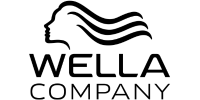

Jason Bloomfield


Carole Smets


Fiona McAslan

2025 Exhibitors
Latest Make A Difference News
Our Movers and Shakers articles highlight who’s moving up, out or across in the rapidly evolving world of workplace culture, employee health and wellbeing. Here’s a selection of just a few of the many “movers and shakers” that have grabbed my attention in March, April and May 2025.
Their job titles are varied, reflecting the diversity of our network, which aims to bring together all stakeholders responsible for workplace culture, employee health, and wellbeing — breaking down silos to REALLY make a difference.
Robina McCann, Vice President Health, Anglo American
First up is Robina McCann who has been with British multinational mining company Anglo American since 2023, rising from Global Occupational Health Lead through to her new role as Vice President Health.
In this role she is responsible for responsible for the global Health Strategy development and implementation, Emergency Management oversight inclusive of preparedness for future Pandemics and Climate Change extreme weather events and capacity and capability building of Safety Health & Environment professionals in health relevant knowledge and skills.
What really sets Robina apart, as she explains on her LinkedIn profile, is her proven track record of creating business value through innovative employee health and wellbeing programmes. Crucially, she is passionate about driving sustainable business models that enhance worker productivity and community health. As a mental health and wellbeing advocate, she also ensures she’s staying ahead of the curve by leveraging cross-industry innovations and technological advancements to foster healthier workers and operating communities.
Jonny Jacobs, Vice President, ICAS
Next, is another passionate advocate for employee health and wellbeing. As well as being a long-term supporter of our work at Make A Difference, and former winner of the Make A Difference True Leader award, Jonny Jacobs is Group Finance Director for British-based health food chain Holland & Barrett (who recently launched & Me which offers a new approach to workplace health and wellbeing).
In addition to this role, Jonny has been appointed as Vice President of ICAS – The Professional Body of CAs – which at 171 years old is the world’s first professional body of accounting & finance professionals. On LinkedIn Jonny explains that: “Coming from a working-class background and being the first in my family to attend university, it’s a privilege to give back to a membership which has supported me so well throughout my career”.
Jonny is looking forward to helping to shape the future of the profession, by collaborating with fellow finance leaders to drive meaningful change within the industry and across the broader accounting and finance landscape.
You can read more about Jonny in this profile interview which we conducted back in 2020 here. Could be time for a fresh profile interview Jonny!
Allison Flemming, Global Total Rewards Benefits Director, Baker Hughes
Meanwhile, it’s great to see that Allison Flemming has been promoted to the role of Global Total Rewards Benefits Director with American global energy technology company Baker Hughes.
In this role she will be responsible for the strategic design, development, and management of the company’s global benefits programmes. Knowing the proactive approach that Baker Hughes takes both to supporting employee health and wellbeing and to stakeholder collaboration, we look forward to seeing what’s next.
Hayley Farrell, Global Health Safety & Wellbeing Director, Arcadis
It’s also great to see that another long-term supporter of Make A Difference, Hayley Farrell, has been promoted to the role of Global Health Safety & Wellbeing Director, with global design, engineering and management consulting company Arcadis.
Writing about the promotion on LinkedIn Hayley said: “What a privilege to serve through our important mission of Protecting Our People by empowering every Arcadian to take a proactive approach to health, safety and wellbeing”.
It’s encouraging to see Hayley’s trailblazing and methodical approach paying dividends. You can read more about this in Hayley’s practical guide to psychological risk assessment here.
Adam Turner, Head of Health, Wellbeing and Flexible Working, NHS England
Next up is Dr Adam Turner, who has been promoted to the intriguing role of Head of Health, Wellbeing and Flexible Working with NHS England – the public body that oversees the budget, planning, delivery and day-to-day operation of the commissioning side of the National Health Service.
In this role Adam will be nationally leading long-term transformational strategy to improve the health, wellbeing and experience of the NHS’s 1.5million workforce, increasing capacity and productivity to empower them to deliver quality care to the NHS’s 57million service users across England.
He plans to achieve this through strategically transforming services, growing the workforce, culture change, complex portfolio management, enabling partnerships with a multiplicity of stakeholders, demonstrating return on investment and economic impact, and managing a multi-million-pound national budget.
We wish you well and look forward to hearing more about it Adam.
Natalie Jutla, Head of Financial Wellbeing & Workplace Strategy, Perkbox Vivup
Last but not least is Natalie Jutla, who, after eight years as EVP and Benefits Lead with the ministerial department Defra — and six years before that as a Reward Specialist with the Environment Agency — has now moved to the supplier side…
In her new role as Head of Financial Wellbeing and Workplace Strategy with employee benefit provider Perkbox Vivup, Natalie will continue to strive to make employee financial wellbeing a priority for both employers and employees by helping to remove the taboo around finances.
Writing on LinkedIn Natalie explained: “Everyone who knows me knows that for the past 10 years, my vision has been to encourage open and honest conversations about money that focus on wellbeing. Employee benefits need to become truly meaningful and not just a tick box exercise, because every employee deserves to—and should—feel valued and supported by their employer”.
You can get a real sense of Natalie’s dynamism and dedication in this interview which she provided for us here.
Movers & Shakers in workplace culture, employee health and wellbeing
Companies that topped this year’s prestigious ‘Best Places to Work 2025’ list garnered employee feedback that showed they are “more content than other workers at home and abroad – and more motivated too”, said the newspaper.
Business Editor Jon Yeomans said: “a healthy corporate culture does not have to cost the earth, either.”
Analysis of the results led the Sunday Times to confirm the correlation between engaged employees and productivity, with higher survey scores equating to harder working, more loyal employees and lower staff turnover and absenteeism.
The aim of the initiative is to find out how employees really feel about their jobs and actually comprises four main lists this year: 26 Best Very Big Places to Work, 115 Best Big Places to Work, 187 Best Medium Places to Work, and 202 Best Small Places to Work.
Watercooler supporters recognised
Several employers involved with the recent Watercooler Event, either speaking or supporting, won a listing, underlining their commitment to employee wellbeing. For example, E.on was listed in the ‘Very Big’ category, as well as being named best place to work for young people in the UK due to its forward-thinking, purpose driven approach.
Hollywood Bowl Group, another Watercooler supporter, was also listed in this category, applauded for its regular staff feedback and varied training programme. It also won a ‘Highly Commended’ accolade in the Best Places to Work for Disabled Employees 2025 Spotlight Award.
Other Watercooler employers Brewers Decorators, Nedbank Private Wealth and Fertifa were named in the ‘Big’ and ‘Small’ categories.
Culture isn’t an add-on
Rachel Quirk, Executive Head of HR, Nedbank Private Wealth said:
“Culture isn’t an add-on here, it drives performance and we actively shape our environment to trust, empower and grow our people. We purposefully invest in our people and support them to do their very best in both their work and personal lives.”
The list is compiled on the back of research by employee experience specialist WorkL, which conducts a 26 question survey. Employers are assessed on specific categories: reward and recognition; instilling pride; information sharing; empowerment; wellbeing; and job satisfaction.
Given there is an entry fee required to participate in the awards, the list is not comprehensive. The cost to enter varies on the size of employers. For instance, in the UK its costs £4,500 + VAT for an organisation with over 2000 employees, and £750 + VAT for one with 10-49 employees.
You might also like:
Sunday Times ‘Best Places to Work’ List: “Companies now recognise that happy employees pay dividends”
Some employers still question whether the cracks in societal systems—like the NHS and welfare—are really their responsibility.
But at The Watercooler Event, progressive employers made it clear: social impact is their business, especially as these systems edge closer to collapse. It’s not just a moral imperative—it makes commercial sense. Healthier people stay in work longer and perform better.
As one member said in a Leader’s Club session:
“Humans are not designed to live at this pace of life. They are breaking. That is what we are seeing. We need to deal with the root causes. There needs to be a radical overhaul of systems. Can employers do more? Yes, I think they can.”
JLR addresses the food system
One employer which has definitely stepped up to the plate (excuse the pun) is Jaguar Land Rover (JLR). It’s addressing one of the biggest, yet most overlooked, systems affecting health: food.
Faraz Shoghi, Head of Health Operations and Service Delivery, at JLR took to the stage at The Watercooler to explain this pioneering move.
Before JLR shared its story, Dr Dolly van Tulleken, Scientist, MRC Epidemiology Unit and Centre for Diet and Activity Research, set the scene with a sobering stat:
60% of the UK’s average diet is made up of ultra-processed foods (UPFs).
“This is driving ill health at a catastrophic level, nationally and globally,” she said.
“In the UK, we’re seeing health consequences which are impacting all of us. They’re becoming huge issues for employers and for the government regarding economic productivity because of issues related to Type 2 Diabetes.”
Government’s failed attempts
Van Tulleken argued that the government’s many attempts to tackle the so-called obesity crisis have failed largely because “these policies emphasise that individuals should change their own behaviour rather than recognising that we live in this [unhealthy] context.”
She urged audience members to ask themselves:
What food is available in the places that you work?
What could you serve?
Healthy food is more expensive than UPF, so are you paying enough [for employees] to afford a healthy life?
JLR’s Response: A Radical Overhaul
These are questions JLR asked of the food it serves to its 35,000 employees in the UK and concluded, as Faraz Shoghi, Head of Health Operations and Service Delivery, Occupational Health, said:
“We couldn’t wait for institutions to change their priorities and voluntarily shift focus towards promoting healthier foods. We have the freedom to start something meaningful now, knowing that future generations can carry it forward. It’s intergenerational change that’s needed – and as enterprises, we have the opportunity to lead that transformation.”
So, JLR set out to create its own ecosystem, driven by Occupational Health, recognising that this has been “about a four to five year journey so far”.
How JLR addressed the food system
1.Put a framework in place
It chose its “north star” as the EAT-Lancet Commission’s Planetary Health Diet, which is a global, scientifically evidenced diet that is healthy for both people and planet. It’s predominantly whole foods and plant based.
2. Raised nutritional literacy
Then it focused on raising awareness and nutritional literacy among employees, which it knew was “quite low” but with a high desire to learn.
“Unfortunately, there’s a lot of misinformation and, as soon as our employees step out of our premises, they’re bombarded with all sorts of content. So, we created a hub of evidence-based practices,” said Faraz.
3. Used everyday interactions
As well as sharing this information online, the employer also made a concerted effort to use everyday interactions, whether with Occupational Health or Centre for Wellbeing, or just a colleague conversation about food generally, to raise nutritional literacy.
4. Addressed the menu
It then addressed the food it served, mindful it needed to create multiple food options which were healthier, but also desirable, working with a “progressive” catering company which shared its mission:
“We found that there was a strong appetite among our suppliers to explore new ideas, and by empowering our catering partner to do the same, we created a space for mutual innovation and growth.”
5. Partnership with people with purpose
Much of the success of this project was about unlocking the creativity in other people, and their desire to change too, said Faraz:
“Many of us are eager to see positive change in the world, and while we often find ourselves navigating complex systems, there’s a growing sense of momentum and shared desire to move forward together.”
6. Made it easy (and sexy)
JLR’s catering supplier partnered with BOSH!, which specialises in making plant-based meals “easy, exciting and delicious” to appeal, especially, to meat-loving males.
“We’re experimenting to see if we can resonate with people and nudge them in the right direction. A lot of it is around reducing barriers,” said Faraz. “People want to have a healthier life and live longer, obviously, but they don’t want it to be an effort or a compromise to their experience. So, our job is to reduce the effort for them and make it more appealing.”
7. Made the price right
Another “massive lever” when it comes to food is pricing.
“We’ve reduced the cost of the food we deem the ‘good stuff’ by 50% and seen a significant increase in uptake as a result,” he said. “You want the easy choice to be the better choice and that’s what we’ve been trying to do through nudging and monitoring.”
8. Smart nudges
To help this “nudging” process of behaviour change, JLR enlisted the help of ProVeg to advise on the psychology of choice. Other “nudges” included putting the healthy option in prime position (rather than the “vegetarian” choice hidden in the corner) and make them feel inclusive.
One key lesson? Avoid the perception of removing choice. Experiment and adapt to find what works best for any given situation:
“We keep innovating, so we’ve tried many different things. Not all of them have been successful but we know that we’re going to have some misses.”
9. Brought everyone on the journey
The company’s employee-led groups have been an effective way to “bring everyone on the journey”, with the working parents network helping to take the message back to families. Faraz said:
“At JLR, we’re committed to serving great food and empowering people to make informed choices – because better food means healthier people and planet.”
You might also like:
JLR: addressing the ultraprocessed food problem
Following these features on Psychosocial Risk Assessments (one, and two), here is a practical checklist from Hayley Farrell, Global Health, Safety, Wellbeing Director at Arcadis, for those at the beginning of their journey…
Where should you start?
Employers need to begin by understanding the psychosocial risk landscape.
Start by identifying what the legislation requires and assessing the current status of psychosocial risk management within your organisation.
Review existing data sources—such as employee surveys, incident reports, and feedback forums—to uncover potential wellbeing hazards. This will provide a solid foundation for establishing priorities and addressing risks effectively.
Top tips here:
- Start small: Focus on manageable areas first before scaling efforts.
- Consultation is key: Actively involve employees in identifying hazards, assessing risks, and implementing appropriate control measures.
- Use clear frameworks: Adopt tools like ISO 45003 to guide your approach to psychosocial risk management.
Focus on leadership buy-in
How?
- Present psychosocial risk assessment as a business-critical issue by highlighting its impact on creating an environment where your people thrive which enhances performance, improves employee retention and also ensures legal compliance in countries where this applies.
- Use data and compelling narratives to emphasise correlations between health and wellbeing and other engagement drivers, for example change management, workload, and line manager support.
- Frame it within the broader context of health and safety—emphasizing the importance of taking a human-centered approach to keeping your people safe both physically and psychologically. Demonstrate how assessing and mitigating risks ensures a sustainable, productive workforce.
Focus on good, clear communication
- Use relatable and empathetic language that resonates with employee.
- Avoid technical jargon and prioritize terms that align with employees’ lived experiences and concerns
At Arcadis we highlight three key areas:
- Protection: HSW stewardship through effective wellbeing risk management
- Promotion: Cultivating a culture of care within the organisation
- Support: Providing mental health and wellbeing resources when employees face challenges or become unwell
Create an approach to elicit honest employee feedback on risks
- Establish a clear and transparent process or procedure for employees to raise concerns
- Communicate this process effectively and work to build psychological safety—creating an environment where employees feel comfortable sharing their experiences without fear of retaliation
- Ensure that feedback is acted upon in meaningful ways, reinforcing trust and demonstrating a commitment to address risks in the workplace that have the potential to cause work-related stress
Work effectively with other functions
Collaboration across departments is essential for effective psychosocial risk management.
Tips:
- Work closely with operational teams to identify risks and implement control measures, ensuring consultation with employees throughout the process
- Involve leaders, line managers, and cross-functional teams to co-create solutions
- Consider how internal and external changes—such as organizational restructuring or new initiatives impact wellbeing
- Leverage existing processes, like change management frameworks, to identify and address risks proactively
Support line managers in assessing risk better
- Provide line managers with targeted training and simple, practical tools to help them identify and address wellbeing risks effectively
- Focus on solutions that simplify their responsibilities—for example, removing unnecessary tasks rather than adding more
- Encourage collaboration across teams to co-create solutions that serve a greater purpose and alleviate the pressure on individual managers
- Shift the mindset from compliance-driven actions to embedding wellbeing into everyday practices—because “we do this because we care”
- Empower managers through training to build their capability and confidence while fostering a supportive, team-oriented approach.
About the author
Hayley Farrell is the Global Health, Safety, Wellbeing Director at Arcadis, co-leading the Global Health, Safety, and Wellbeing (HSW) function to protect the physical and psychological safety of employees by fostering a culture of care. An award-winning wellbeing practitioner, Hayley develops and delivers Arcadis’ global health, safety and wellbeing strategy.
She was the first practitioner globally to achieve certification for the adoption and implementation of ISO 45003: Occupational Health and Safety Management – Psychological Health and Safety at Work.
You might also like:
Psychosocial Risk Assessment: a practical guide
Collaboration as a theme always comes up at our events – both the MAD World Summit and The Watercooler – but at this year’s Watercooler, which took place on 7th and 8th May, the conversation around collaboration changed.
It got much more specific. And determined. Some might even say feisty.
When talking about inter-departmental collaboration, there was a definite frustration in the air due to the way some colleagues are currently openly doubting the value of Health, Wellbeing and Belonging work. Many attributed this to the trickle-down effect of the DEI backlash coming from America.
DEI backlash fuelling determination
However, while this backlash may be fuelling their frustration, it’s also fuelling a renewed determination to find more effective ways to convince colleagues – especially senior management – of the value and impact of this type of work.
After all, without this buy-in, Health and Wellbeing cannot be successfully embedded across an organisation and realise its full potential. The Watercooler came at a pertinent time, then, to share these stories of how to engage others better and the energy at the event was palpable.
Here are 7 key take aways….
1. Just being in the room together isn’t collaboration
There is a huge difference between showing up out of obligation and being genuinely engaged.
True collaboration requires a shared sense of purpose and positive intent.
Many speakers reflected on the fact that, while Health and Wellbeing and DEI professionals may have got people in the room, they haven’t always succeeded in fostering this sense of partnership.
As Nina Goswami, Head of Inclusion UK for law firm Clifford Chance, said in her session on ‘Understanding each other to ensure equality for all’:
“Being included is one thing, but being represented and actually having a voice, and having the chance to actually have your voice heard, is another thing and a lot of companies don’t see the difference between the two.”
2. Forced to meetings
Executive Coach Selina Suresh in her session on ‘Why gender equality is best for men’ recounted scenarios of male dominated organisations where employees felt forced to attend meetings, but didn’t really want to be there:
“We’ve worked with a lot of c-suites. For a lot of those people, as soon as you put diversity, equity and inclusion in the title of any kind of session, they have already mentally checked out.”
The way to check them back “in” and transform them into genuine collaborators is to “build trust”, make people feel genuinely included and give them a sense of connection and belonging in the room. This often comes down, she said, to good leadership.
3. You can’t automate collaboration
One of the Watercooler event’s running themes was holding onto our humanness in a tech-driven world.
Collaboration isn’t something AI can schedule for you—it takes time and human connection.
Colleagues don’t generally trust each other, or work at their best with each other, until this connection is forged.
Arguably, due to our collective lack of time today (despite AI supposedly freeing us up!), the increase in screen-based remote working and the pressure on employees to be productive, creating the conditions for good collaboration is harder than ever.
4. Putting ‘time’ back into our timetables
One way suggested at The Watercooler to put time for relationship-building back into our time tables would be to use a different metric to measure productivity. This was spoken about in the panel on ‘Leveraging the power of data’, one speaker suggested measuring collaboration itself, rather than productivity.
Jamie Davis, Director of Workplace Strategy, Fidelity International, said:
“I’d like to learn more about how people collaborate and network within the business. We’re all leaders, whatever level of the organisation we’re at. It would be fascinating to see who are the linchpins that hold departments together, who are the people who enable collaboration.”
When asked if that is a metric he’s taking steps to create, he replied that it was “definitely an ambition”.
5. Broader ROI
The previous point about metrics feeds into a wider point made through the event about ROI and the fact it needs to be broader to truly encompass the impact of Health and Wellbeing.
For instance, in the same session on leveraging data, facilitator Allison English, Co-CEO Aéto Strategy, argued that we should be measuring “progress” rather than productivity by saying:
“The word [productivity] we’re using is wrong. Maybe something like ‘progress’ is more important. So, you may not have done your emails today, but if you helped move a project forward or you moved a team forward, that’s progress.”
6. No magic formula; but trust the magic
While there’s no magic formula to follow, there is a certain amount of trust in the “magic” of collaboration that is necessary for success.
In the ‘Office’ stream, speakers talked about the organic process of being in the office and “engaging with other people in other parts of the business” that would lead to those magical or “serendipitous” moments. These cannot be predicted by data analytics.
These are the moments, when people are relaxed and their guards are down, which often lead to new ideas and increased understanding of each other; something that is more challenging when different departments are in a more formal meeting and budgets may be up for grabs.
Ryan Jans, Regional Head of Leasing, WeWork, also talked about them in his keynote on one of the hottest topics at the moment – office mandates:
“We need to make sure that employees come back in [to the office] for these moments that matter, for that interaction, for that collaboration. In Britain, the magic is often after the meeting, after we do the niceties and have the meeting. And we can miss that digitally and I want us to bring back these little magical moments that connect us.”
7. Design for serendipity
But, of course, tech can encourage connection. Davis, speaking in the session on leveraging data, shared how Microsoft Viva Insights helps identify when contacts are in the office at the same time and suggests brief meetups.
“It’s just using the available pieces of technology and data to try and encourage collision,” he said.
But, again, colleagues can ‘collide’ but, unless the relationship foundations are there, they probably won’t ‘collaborate’ optimally.
Jans also talked about not being able to control serendipity, but said “you can certainly stack the deck in your favour”. This, he said, takes “intentionality” and he cited the example of his company’s ‘culture committee’ which meets monthly to discuss effective ways to bring people together in engaging ways.
In his experience of observing many employers, and their return to work office strategies, there is one common weakness he sees most, which relates directly to collaboration:
“They’ve designed a beautiful space. It’s high quality and works. Then they give employees key cards and say ‘here you go, we’ll see you around’. That’s where employers are dropping the ball. They’re not creating connection. We need to activate our communities. We need to encourage people to work together and have a shared purpose.”
Collaboration will continue to be a central theme at our events; our next event is the 8th Annual MAD World Summit which takes place on 9th October 2025 in London. The Watercooler Event is already in the planning for next year, scheduled to take place on 15-16th April 2026, at ExCel London.
You might also like:
Collaboration: in the room doesn’t mean on board
Research published in The Times this week found that the majority of employees in the UK would refuse to comply with full-time return-to-the office mandates.
This is despite senior management’s waning enthusiasm for remote working. A September 2024 KPMG survey revealed that 83% of UK CEOs expect a return to full-time office working within the next three years, and in May, INEOS CEO, Sir Jim Ratcliffe, joined other senior business figures by stating that staff should return to the office.
Call for business leaders to rethink hybrid working strategies
A OnePoll survey of 2000 UK professionals engaged in hybrid working, commissioned by global learning and engagement platform Kahoot! in November 2024 revealed that, though a desire for remote working remains amongst UK professionals, 29% of 18-24-year-old respondents and 34% of 25-34 year olds saying they would be more likely to quit their jobs, should more days in the office be mandated) a range of challenges are emerging. These are offset by positives too:
- The mental and physical health impacts of WFH
- 55% of UK workers suffer from ‘video call fatigue’ (with exhaustion after too many video calls experienced most acutely by Gen Z)
- 11% admit that WFH has increased their weekly alcohol consumption. Positively
- 74% believe hybrid working has improved personal relationships
- 63% believe it has had a positive impact on relationships with colleagues.
- WFH Productivity drop:
- 46% of UK hybrid workers now believe they are more productive working in the office than working remotely.
- Only 23% of UK hybrid workers believe that they are more productive at home.
- The new intolerant video call etiquette
- 28% of UK workers are less tolerant of a colleague’s video call being crashed by children or pets than a year ago
- 50% object to other video call attendees eating and drinking.
- Security risks of hybrid working
- 32% of UK workers have eavesdropped on a stranger’s video call (on public transport or in a cafe) seeing or hearing confidential information which could be exploited.
- A growing distrust of fellow remote workers
- Over half of UK hybrid workers believe a colleague has faked technical issues to exit a video call
- 36% think colleagues do less work at home than in the office.
- “That video call could have been an email”
- 87% of Brits believe a proportion of their weekly working video calls are unnecessary
- Over a 1/4 of Brits think that half of their weekly calls could have been resolved by email.
- A third of UK workers consider video calls less productive than in-person meetings, and productivity on video calls has decreased year-on-year.
- WFH And the Home
- 27% of hybrid workers choose properties based on their potential as a video call background;
- 42% of UK workers blur the background due to shame about their domestic environment.
Commenting on the report’s findings, Sean D’Arcy, Chief Solutions Officer at Kahoot! said: “The novelty of remote work has no doubt faded, with many employees reporting video call fatigue, productivity drops, and privacy concerns. Yet, our study shows that a third of UK hybrid workers would quit if WFH days were reduced, underscoring the lasting impact of the remote work shift.
Workers also highlight that increasing interactivity could help alleviate fatigue and make meetings more effective. Rather than forcing employees back to the office, employers should focus on improving hybrid work by optimizing meetings, keeping them shorter, more purposeful, and engaging. Flexibility and collaboration remain key, and at Kahoot! we see how fostering engagement empowers hybrid teams to thrive while meeting the demands of a modern workplace.”
Half of UK to look for new job if RTO mandated full time new research suggests
Sir Charlie Mayfield is leading the government-commissioned Keep Britain Working review, which is exploring how employers can help tackle the UK’s rising levels of economic inactivity and work-limiting health conditions. The review’s first “discovery” phase outlines the scale and drivers of this challenge — and highlights where employers and government can make the greatest impact.
Ushering in a New Era of Workplace Health and Wellbeing
As the review moves into its next stage — focused on prevention through incentives, interventions, and effective case management — the next meeting of the Make A Difference Leaders’ Club offers a unique opportunity to hear directly from Sir Charlie Mayfield, in conversation with Dame Carol Black. This timely discussion will bring clarity to what the findings mean for employers and what actions may be expected.
The session will be hosted by Mark Malcomson CBE, Chief Executive of City Lit, who will also join the conversation.
If you’re a member of the Make A Difference Leaders’ Club and would like to join us for this important discussion — at the intersection of business, health, and policy — please contact claire@makeadifference.events for full details and to reserve your place.
Spaces are limited to 40 and are open only to senior members of the Make A Difference Leaders’ Club. Please note that 20 of these spaces have already been reserved.
About the Make A Difference Leaders’ Club
The Make A Difference Leaders’ Club is a thriving network of like-minded employers, spanning sectors and disciplines, who are committed to improving workplace culture, employee health, and wellbeing.
Our mission is to showcase and advance best practice — and to bring more employers into this vital conversation.
Membership of the Leaders’ Club is free and open to senior representatives of employers, provided your role includes responsibility for workplace culture, employee health and wellbeing, and you are involved in purchasing decisions related to this remit.
Membership is not open to suppliers of workplace culture, health, or wellbeing products and services.
Thanks to the far-sighted support of Personify Health, who are sponsoring the Club throughout 2025, we’re able to keep membership free of charge.
You can find out more about the Leaders’ Club and apply to join here.
You might also like:
Sir Charlie Mayfield to speak at next Make A Difference Leaders’ Club meeting
The Health and Safety Executive (HSE) has launched a free online learning module to help employers get to grips with risk assessment of work-related stress. The module provides all the practical templates, tools and resources needed to get started, or to review existing practices.
This move is another which shows the body’s renewed commitment to ensuring that employers adhere to legal requirements, following its high profile probe into claims of preventable workplace stress at the University of Birmingham (see this article for more information).
Given the record rates of work-related ill health attributed to stress, depression and anxiety, this training aims to provide step-by-step guidance for employers on conducting effective risk assessments, identifying root causes of work-related stress and implementing solutions that are genuinely effective.
Working Minds
The launch coincided with Mental Health Awareness Week (12-18 May) and expands HSE’s Working Minds campaign, which supports businesses in preventing work-related stress and supporting good mental health. It’s also in line with its ‘Protecting people and places’ strategy for 2022 – 2032, which listed reducing work-related ill health, with a specific focus on mental health and stress, as its number one strategic objective.
Kayleigh Roberts from HSE’s Engagement and Policy Division said:
“Preventing work-related stress isn’t just the right thing to do for your workers—it’s also a legal requirement. Our new online learning module aims to make it easier for businesses, particularly small to medium organisations to understand their obligations and what they need to do on a practical level.”
Not about tick boxes
Roberts said this initiative isn’t about “ticking boxes” but about “embedding good practices into everyday business operations”.
HSE highlights six main areas that can lead to work-related stress if not managed properly: demands, control, support, relationships, role, and change.
Employers are encouraged to implement the Working Minds campaign 5Rs approach to support the risk assessment process:
- Reach out and have conversations
- Recognise the signs and causes of stress
- Respond to risks by agreeing action points
- Reflect on the actions taken
- Make it Routine to check in regularly
Employers can register for the online learning module to access step-by-step advice, practical tools, and downloadable templates by visiting the Working Minds campaign website.
You might also like:
HSE’s new training: regulator is getting tougher on stress risk assessments at work
While most workplaces offer mental health support on paper, the real challenge — and opportunity — lies in delivering the right help, at the right time, to those who need it most.
Recent research shows that between 79% and 88% of UK employers provide access to an Employee Assistance Programme (EAP), and 40% offer Private Medical Insurance (PMI). Yet absenteeism and presenteeism persist — and in many cases, the six sessions of counselling typically provided through EAPs are simply not enough.
Bridging the gap
If you’re finding that the support available through your EAP or PMI falls short of meeting employees’ needs, join our free-to-attend Make A Difference webinar, sponsored by Onebright on Wednesday 25th June from 11.00am – 12.00pm to learn:
- Approaches to closing the gap for individuals who require rapid, personalised access to mental health support — including how this can complement existing provision to head off presenteeism, reduce the cost of cover, support neurodivergent colleagues and deliver tangible ROI data.
- How occupational health, HR, and line managers can collaborate to ensure timely, unstigmatised support when needed.
- Why it’s increasingly important to support working parents and extend mental health support to employees’ families.
Featuring expert speakers Shamira Graham, Chief Commercial Officer, Onebright and other panel members to be confirmed.
Who Should Attend:
- C-Suite, HR, Wellbeing, DE&I and Occupational Health Leaders
- Benefits & Rewards, Talent, Engagement and Communication Leaders
- Culture & Transformation Leaders
- Managers, Team Leaders, ERG Chairs & Wellbeing Champions
- Anyone who cares about their people and their business

